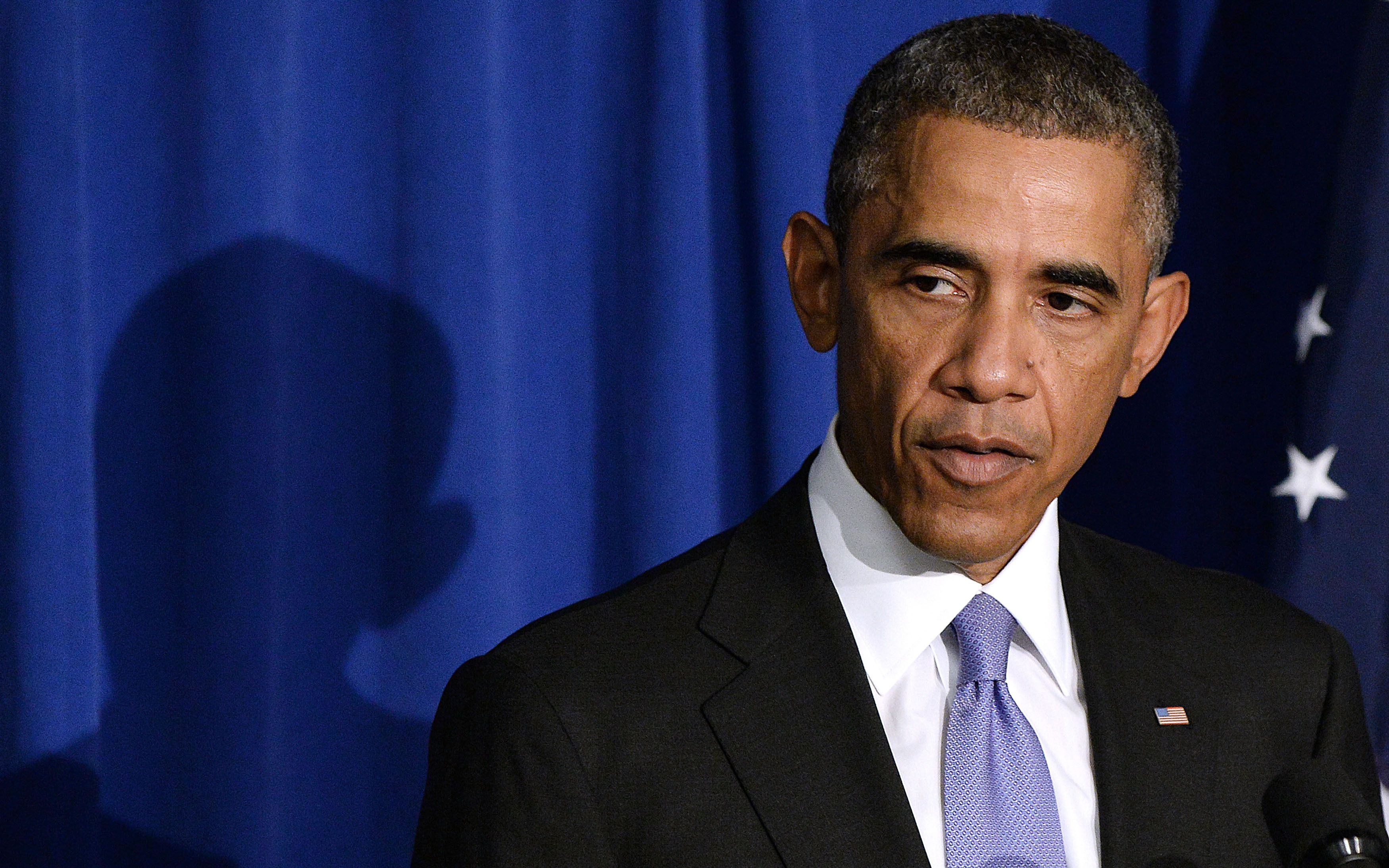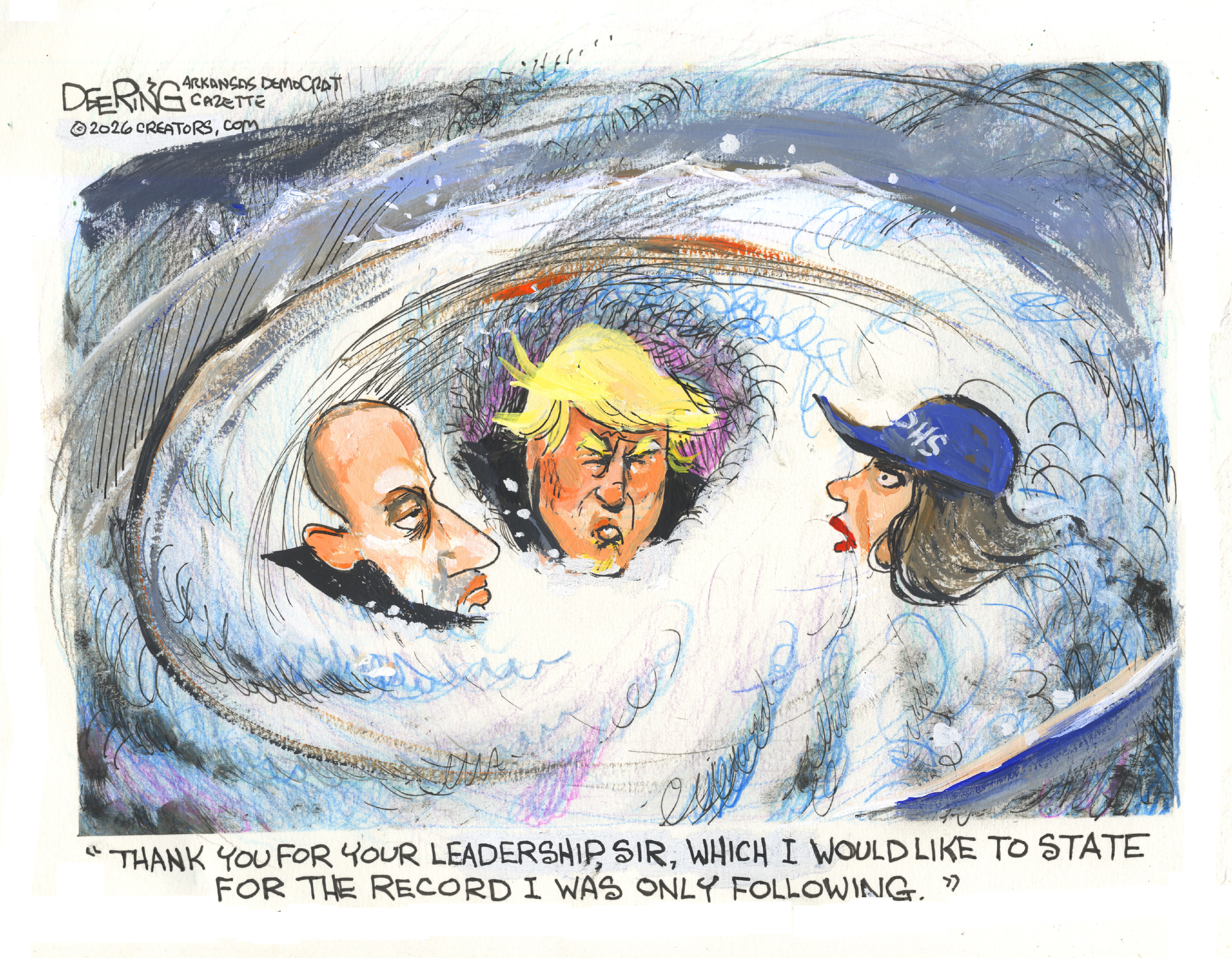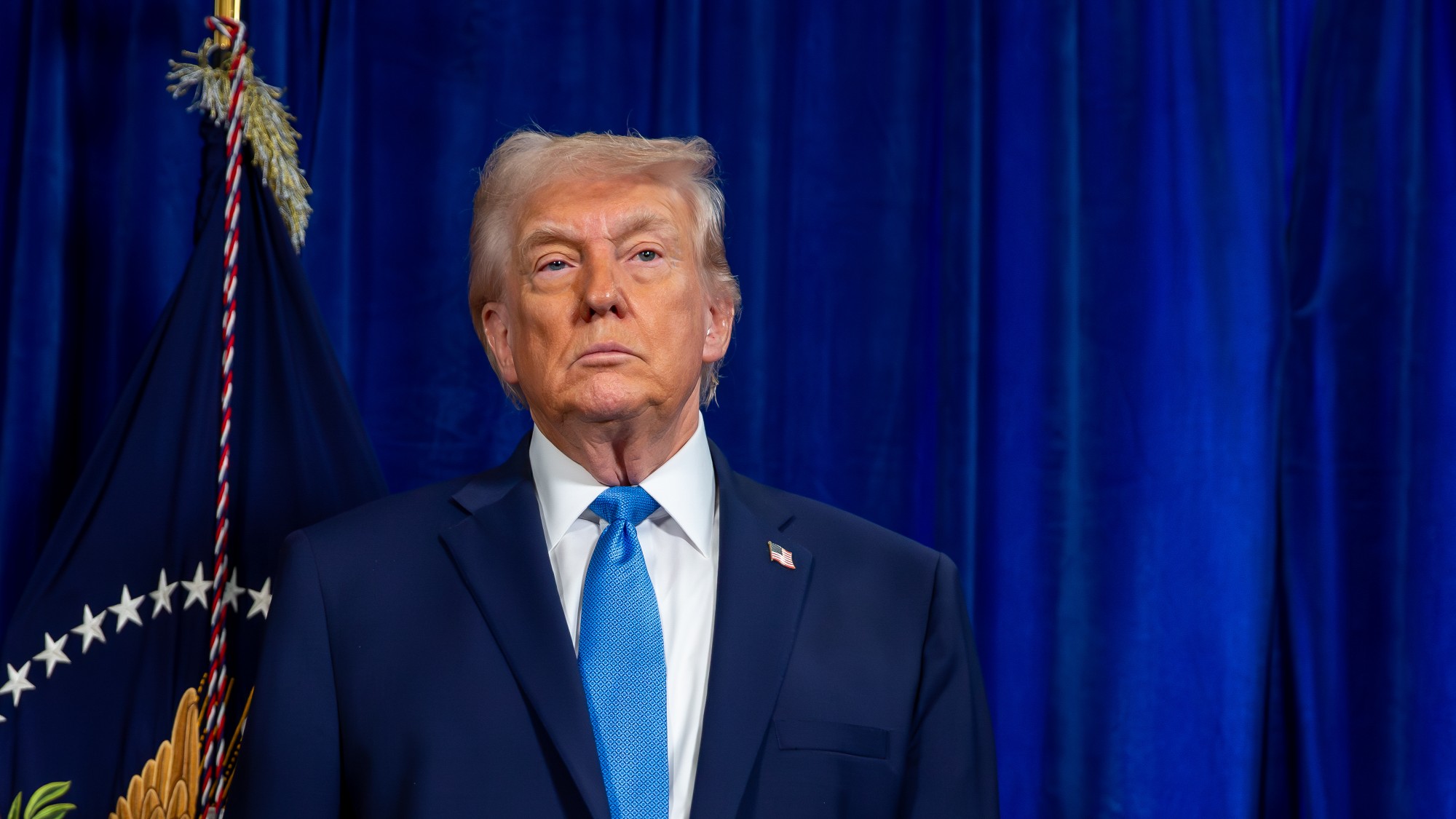Yes, it's okay for Obama to 'bully' the Supreme Court
As we await the fate of ObamaCare, the president's critics are trying to muzzle him


A free daily email with the biggest news stories of the day – and the best features from TheWeek.com
You are now subscribed
Your newsletter sign-up was successful
President Obama recently gave a speech in which he offered some rather mild criticisms of the arguments being made by the plaintiffs in King v. Burwell, the forthcoming Supreme Court case that could very well determine the fate of Obama's health care law. "This should be an easy case. Frankly, it probably shouldn't even have been taken up," said Obama. "It seems so cynical to want to take coverage away from millions of people."
Not exactly fire-breathing rhetoric. And yet various conservatives who anxiously want the Supreme Court to willfully misread the law and cripple ObamaCare reacted hysterically. "[T]ypical Obama bullying of the Court," huffed the legal scholar and blogger Glenn Reynolds. "[T]here's nothing 'moral' about attempting to bully the Supreme Court by presenting a false choice between the rule of law and love for one's neighbor," thundered a Republican legal operative. Michael Cannon, one of the major drivers of the litigation, which claims the federal government does not have the right to provide subsidies to states that do not establish their own health care exchanges, asserted that it was "a speech designed to cow the Supreme Court justices into turning a blind eye to the law."
To state what should be obvious, the idea that Obama is engaged in some kind of illegitimate "bullying" by criticizing the latest anti-ObamaCare attack cooked up by the law's most fanatical opponents is asinine. Obama is not suggesting that he would refuse to comply with an unfavorable ruling. He is not following FDR and arguing that Congress should retaliate by adding additional seats to the court. He has no leverage to force the court to do anything. He's expressing his views about a case.
The Week
Escape your echo chamber. Get the facts behind the news, plus analysis from multiple perspectives.

Sign up for The Week's Free Newsletters
From our morning news briefing to a weekly Good News Newsletter, get the best of The Week delivered directly to your inbox.
From our morning news briefing to a weekly Good News Newsletter, get the best of The Week delivered directly to your inbox.
And there's absolutely nothing wrong with that. The Supreme Court has the authority to determine the meaning of statutes. But that doesn't mean that public officials are required to agree with every possible outcome, something Reynolds understands perfectly well when there's a Republican in the White House.
On the merits, the arguments against Obama's argument are also weak. Reynolds links to National Review's Joel Gehrke, who suggests that King cannot possibly be an easy case because "Jonathan Gruber, one of ObamaCare's architects, famously contradicted that assertion in 2012." For one, Gruber, a health care consultant, did not draft any of the relevant provisions of the bill. He also, of course, did not vote for it. Given that literally every other supporter of the ACA who was involved in the process — including many who were far more important players than Gruber — believes that the ACA made subsidies available on federally established exchanges, citing Gruber as evidence that King cannot be an "easy case" is feeble.
But it's worse than that. Gehrke quotes Gruber as saying, "What's important to remember politically about this is if you're a state and you don't set up an exchange, that means your citizens don't get their tax credits." But Gehrke conveniently omits the preceding sentence: "The federal government has been sort of slow in putting out its backstop, I think partly because they want to sort of squeeze the states to do it." In other words, Gruber seems to be arguing that the federal government might not establish the exchanges in time, not that the exchanges wouldn't provide tax credits. So this is cherry-picking without the cherry.
But the quality of the arguments against Obama isn't really the point. Claiming that Obama isn't allowed to criticize the court is an attempt to control the politics should the court wreck the federally established exchanges. As Sen. John Thune's infamous bellyflop on Twitter showed, Republicans will try to argue that if a conservative challenge to the ACA is accepted by a bare majority of GOP-appointed Supreme Court justices, and state and federal legislators refuse to do anything as millions of people lose their insurance, it's Barack Obama's fault.
A free daily email with the biggest news stories of the day – and the best features from TheWeek.com
If that argument sounds dumb, it's because it is. So I really can't blame the ACA's opponents for their preemptive whining. Like every other aspect of this latest legal challenge, the argument is an almost comically transparent fraud. If I was trying to sell the idea that Congress set up a federal backstop that was designed to fail, and kept this a secret for reasons nobody has ever been able to explain, I might argue that disagreeing with me was inherently illegitimate too.
Scott Lemieux is a professor of political science at the College of Saint Rose in Albany, N.Y., with a focus on the Supreme Court and constitutional law. He is a frequent contributor to the American Prospect and blogs for Lawyers, Guns and Money.
-
 Political cartoons for February 8
Political cartoons for February 8Cartoons Sunday’s political cartoons include going down the drain, American history, and more
-
 Touring the vineyards of southern Bolivia
Touring the vineyards of southern BoliviaThe Week Recommends Strongly reminiscent of Andalusia, these vineyards cut deep into the country’s southwest
-
 American empire: a history of US imperial expansion
American empire: a history of US imperial expansionDonald Trump’s 21st century take on the Monroe Doctrine harks back to an earlier era of US interference in Latin America
-
 The billionaires’ wealth tax: a catastrophe for California?
The billionaires’ wealth tax: a catastrophe for California?Talking Point Peter Thiel and Larry Page preparing to change state residency
-
 Bari Weiss’ ‘60 Minutes’ scandal is about more than one report
Bari Weiss’ ‘60 Minutes’ scandal is about more than one reportIN THE SPOTLIGHT By blocking an approved segment on a controversial prison holding US deportees in El Salvador, the editor-in-chief of CBS News has become the main story
-
 Has Zohran Mamdani shown the Democrats how to win again?
Has Zohran Mamdani shown the Democrats how to win again?Today’s Big Question New York City mayoral election touted as victory for left-wing populists but moderate centrist wins elsewhere present more complex path for Democratic Party
-
 Millions turn out for anti-Trump ‘No Kings’ rallies
Millions turn out for anti-Trump ‘No Kings’ ralliesSpeed Read An estimated 7 million people participated, 2 million more than at the first ‘No Kings’ protest in June
-
 Ghislaine Maxwell: angling for a Trump pardon
Ghislaine Maxwell: angling for a Trump pardonTalking Point Convicted sex trafficker's testimony could shed new light on president's links to Jeffrey Epstein
-
 The last words and final moments of 40 presidents
The last words and final moments of 40 presidentsThe Explainer Some are eloquent quotes worthy of the holders of the highest office in the nation, and others... aren't
-
 The JFK files: the truth at last?
The JFK files: the truth at last?In The Spotlight More than 64,000 previously classified documents relating the 1963 assassination of John F. Kennedy have been released by the Trump administration
-
 'Seriously, not literally': how should the world take Donald Trump?
'Seriously, not literally': how should the world take Donald Trump?Today's big question White House rhetoric and reality look likely to become increasingly blurred
